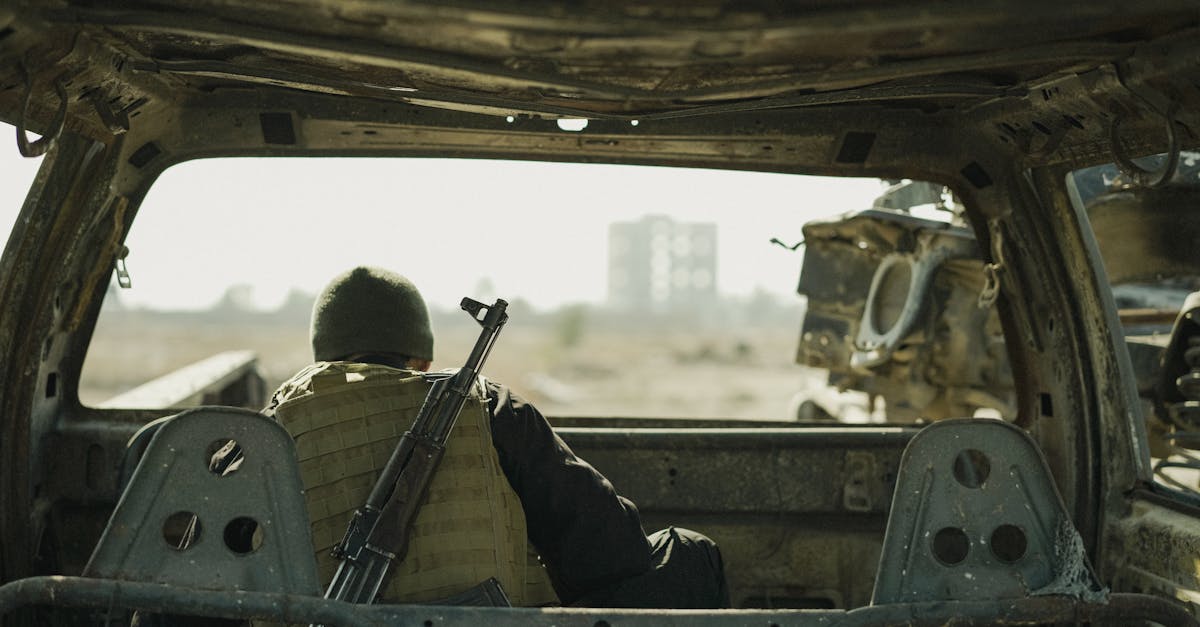
Introduction
In late 2023, "Operation Rough Rider" made global headlines as a coordinated military effort involving US and UK forces targeting Houthi positions in Yemen. The operation was launched in response to increasing Houthi attacks in the Gulf region, escalating tensions and security concerns for international shipping lanes. As part of the broader objective to curb Houthi influence and their support from external actors, the operation gained backing from various allied nations. The carefully planned strikes aimed to dismantle key Houthi strategic points, crippling their operational capabilities. While interventions of this kind often invite international debate, the decision was underscored by recent intelligence findings and diplomatic engagements. The intricacies of this operation reflect complex geopolitical dynamics that have implications for regional stability.
Background on the Houthi Conflict
The Houthi movement, officially called Ansar Allah, surged to prominence during Yemen's 2011 Arab Spring protests. Initially political, the group's role swiftly morphed into a militarized faction exerting significant influence. By 2014, the Houthis had captured the Yemeni capital, Sanaa, leading to an ongoing civil war that spanned over a decade. Their control over critical territories has rendered the movement a focal point of regional geopolitical interests. Multiple international actors, including the US, UK, and Saudi-led coalitions, have attempted to curb Houthi expansions, given accusations of Iranian logistical and military support. The complexity of Yemen's war arises from layered tribal, secular, and external political agendas.

Yan Krukau/Pexels
The Strategic Importance of Yemen
Yemen's geostrategic importance cannot be overstated, positioned at the crossroads of vital maritime routes such as the Red Sea and Gulf of Aden. These waters are essential for global oil shipments and trade, potentially compelling international intervention when threatened. The Bab-el-Mandeb Strait, a chokepoint linking the Indian Ocean to the Mediterranean, is especially vital. Houthi control over Yemen raises the stakes for maritime security, given previous instances of targeted vessel attacks. "Operation Rough Rider" roots itself in the essential need to protect these maritime channels, ensuring uninterrupted trade and energy flows. The operation underscores global interest in Yemen beyond its borders.
International Reaction and Support
The launch of "Operation Rough Rider" was met with varied international reactions. Western allies, understanding the risks posed by unrestricted Houthi operations, pledged support for the intervention. Gulf Cooperation Council (GCC) members, who have previously engaged directly in the Yemeni conflict, voiced approval, emphasizing Yemen's stability as crucial for regional safety. Meanwhile, nations such as Russia and Iran criticized the operation, labeling it as unnecessary external pressure. Diplomatic channels saw fervent discussions showcasing global divisions regarding Middle Eastern interventions. Despite differences, many countries echoed concerns about humanitarian impacts and urged for precision in military operations to protect civilians.
Objectives and Execution of the Operation
"Operation Rough Rider" sought distinct and strategic outcomes— dismantling Houthi weapon caches, neutralizing missile sites, and cutting supply chains. Intelligence from satellites, on-ground informants, and cyber reconnaissance crafted targets with precision. Coordinated airstrikes from both US and UK forces over several pivotal days positioned the operation as swift and efficient. Leveraging technology, both nations ensured real-time monitoring of strike effectiveness. The operation encapsulated a blend of traditional and modern warfare tactics, integrating cyber warfare measures to disrupt Houthi communications. Such intricate planning was key amidst hostile terrains.
Operational Challenges and Risks
Despite seamless planning, "Operation Rough Rider" contended with numerous logistical and strategic challenges. Yemen's rugged landscape, coupled with the Houthis' embedding within civilian infrastructures, demanded surgical precision to minimize collateral damage. Weather variations and limited intelligence on certain Houthi hideouts posed additional risks. Humanitarian concerns were ever-present, necessitating adherence to international laws of warfare. The potential for escalation was acknowledged, understanding that such operations could trigger retaliatory actions. Nonetheless, intricate coordination among international forces helped mitigate immediate operational risks.
Humanitarian Concerns and Measures
The humanitarian impact of "Operation Rough Rider" was critically assessed throughout its planning stages. Measures were adopted to ensure minimal civilian harm, with advanced targeting technology and time-sensitive operations emphasizing collateral protection. The coalition engaged with humanitarian organizations to align aid across conflict zones, addressing inevitable disruptions. Efforts were amplified post-strike, focusing on relief and Essential Services Restorations in affected areas. Reports assert that these measures were successful in balancing military prowess with compassion, acknowledging the societal impacts of warfare. Ensuring humanitarian support amidst military campaigns underscores evolving modern war doctrines.
Stakeholder Reactions and Media Coverage
The global media closely monitored "Operation Rough Rider," translating military strategies into broader public discussions. Major outlets from the US, UK, and Middle East debated the operation's merit, intricacies, and potential long-term impact. Analysts provided insights into Yemen's geopolitical quagmire, emphasizing the balancing act of asserting military might while ensuring humanitarian considerations. Public opinion remained polarized, divided between advocacy for decisive action against militarized factions and concern over external interventions. The coverage reinforced the complexities and moral dilemmas inherent in such large-scale operations affecting civilian populations.
The Road Ahead for Yemen and the Coalition
In the aftermath of "Operation Rough Rider," questions loom regarding Yemen's future and the coalition's ongoing role. While the operation achieved short-term military objectives, its long-term effectiveness hinges on political resolutions and peacebuilding efforts. The Houthis remain a testament to enduring conflict resilience in contentious geopolitical landscapes. The coalition continues to emphasize order and stability, understanding the necessity of strong governance and diplomatic outreach to prevent resurgence. The success of such operations lies not only in strategic might but also in the fruitful engagement of international and local stakeholders.
Conclusion
"Operation Rough Rider" demonstrates the complexities inherent in modern military engagements. Serving as a reflection of ongoing geopolitical turmoils, the operation highlights Yemen's delicate throat amidst regional instability. Deliberate planning and coalition unity signified effective tactical execution, though challenges of long-term peace remain. The strengthened international emphasis on humanitarian considerations emerges as a positive operational aspect. Ultimately, establishing lasting stability in Yemen requires combined efforts of military, diplomatic, and humanitarian frameworks, aiming for harmonized regional peace.